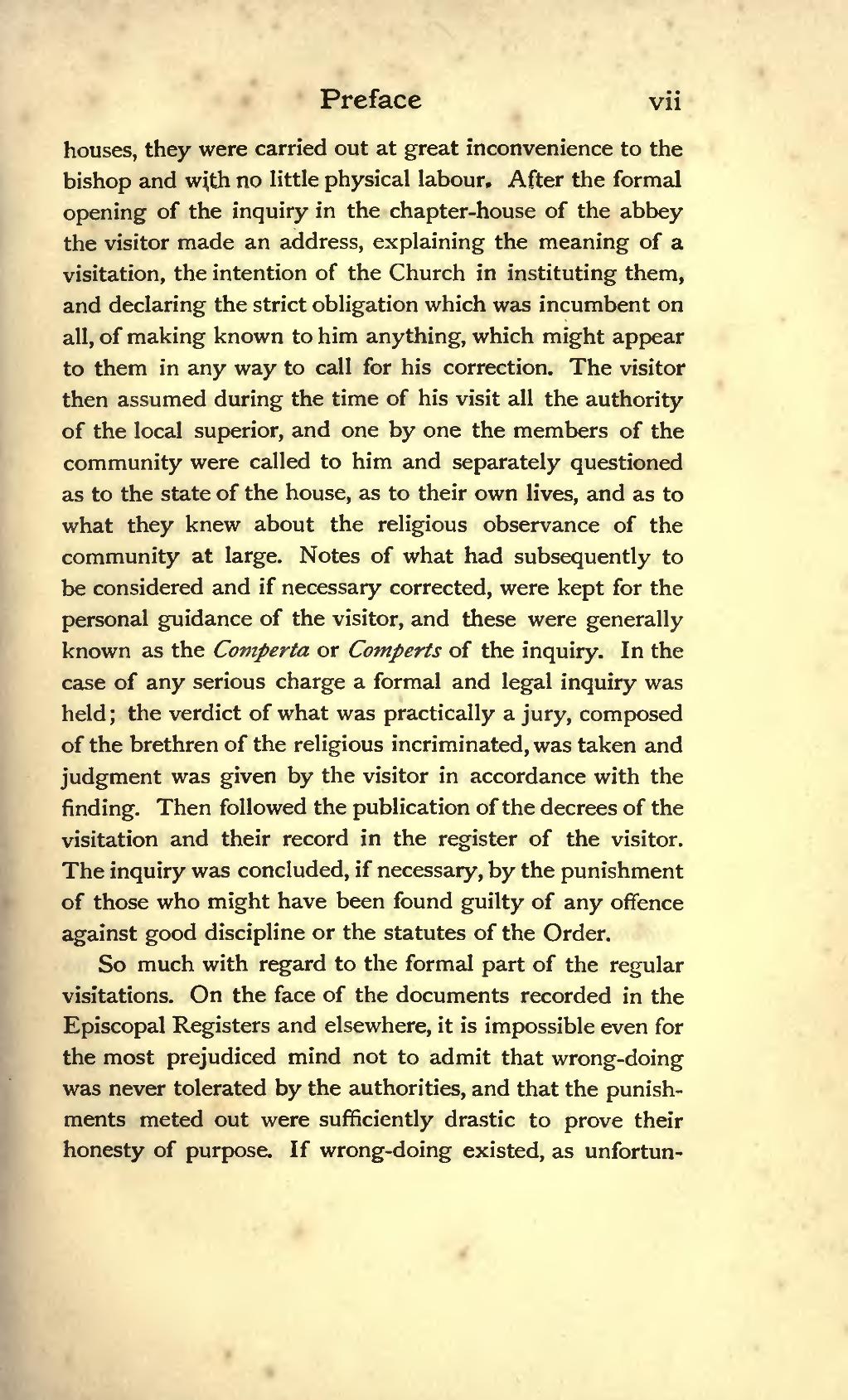houses, they were carried out at great inconvenience to the bishop and with no little physical labour. After the formal opening of the inquiry in the chapter-house of the abbey the visitor made an address, explaining the meaning of a visitation, the intention of the Church in instituting them, and declaring the strict obligation which was incumbent on all, of making known to him anything, which might appear to them in any way to call for his correction. The visitor then assumed during the time of his visit all the authority of the local superior, and one by one the members of the community were called to him and separately questioned as to the state of the house, as to their own lives, and as to what they knew about the religious observance of the community at large. Notes of what had subsequently to be considered and if necessary corrected, were kept for the personal guidance of the visitor, and these were generally known as the Comperta or Comperts of the inquiry. In the case of any serious charge a formal and legal inquiry was held; the verdict of what was practically a jury, composed of the brethren of the religious incriminated, was taken and judgment was given by the visitor in accordance with the finding. Then followed the publication of the decrees of the visitation and their record in the register of the visitor. The inquiry was concluded, if necessary, by the punishment of those who might have been found guilty of any offence against good discipline or the statutes of the Order.
So much with regard to the formal part of the regular visitations. On the face of the documents recorded in the Episcopal Registers and elsewhere, it is impossible even for the most prejudiced mind not to admit that wrong-doing was never tolerated by the authorities, and that the punishments meted out were sufficiently drastic to prove their honesty of purpose. If wrong-doing existed, as unfortun-
